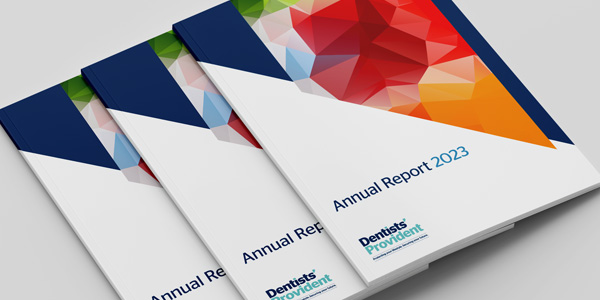
With the long, warm summer evenings and the smell of BBQs filling the air, it’s all too easy to open a cool beer, bottle of chilled wine or mix up the Pimms. And while the majority of us might enjoy such an evening with no major repercussions to our health, it could be time to step back and remind ourselves, and our patients, of the potentially harmful risks of alcohol on our oral and general health.
The facts
While many of us drink alcohol moderately, according to the NHS, more than 24% of people in England alone consume alcohol in a way that’s harmful, or potentially harmful, to their health and wellbeing. For men, this is drinking more than the recommended limit of three to four units a day on a regular basis and for women, more than the recommended limit of two to three units.
The Health and Social Care Information Centre’s Statistics on Alcohol – England 2014, published in May last year, paints a picture of our drinking habits: amongst adults who drank alcohol in the week before being interviewed, 55% of men and 53% of women drank more than the recommended daily amounts.
Patient health
As a dentist, you may discuss your patient’s alcohol intake with them, and are acutely aware how excessive alcohol consumption can impact on their oral health – as well as the fact that drinking to excess is linked with oral cancer. However, regular conversations about their lifestyle and the recording of their medical history may also highlight potential overall health risks.
Writing for the British Dental Health Foundation, Jonathan Shepherd, Professor of Oral and Maxillofacial Surgery at Cardiff University, supports this by saying: “Since alcohol misuse affects patients’ general health, addressing this in primary dental care settings also enables dental professionals to meet wider health promotion responsibilities. Unlike primary medical care, primary dental care services are used by patients on a regular, prevention-orientated basis, with the majority of people attending for a routine check-up irrespective of any oral health problem. This provides the primary dental healthcare team with unique opportunities to intervene, particularly as asking patients about their levels of alcohol consumption is a routine component of medical history taking.”
Additionally, the BDA’s Oral Health Inequalities Policy suggests dentists are ideally placed to inform and advise patients about their oral and general health risks, including alcohol use. With statistics showing that, every year, alcohol is responsible for around 4% of UK cancers – about 12,800 cases per year – as a healthcare professional, you have an important part to play in educating your patients about the risks.
Your health
As you are at the start of your dental career, it is an ideal time to know of the risks that your profession is prone to, such as musculoskeletal issues and stress. In a survey investigating stress management in the dental team, conducted by Joanna Taylor, a dental practice manager, accredited clinical hypnotherapist and Neuro-Linguistic Programming (NLP) master practitioner, out of the 178 principal and associate dentists who took part, more than one third (36%) stated they were stressed about their work during most working days and nearly one fifth (19%) felt stressed every day. The survey also found that popular stress management tools for dentists included alcohol, along with playing sport and reading.
Being mindful of your work-life balance could also go a long way in helping to minimise stress. In the New Scientist in January this year they published a new report stating: ‘The largest ever analysis of working hours and alcohol consumption has found that people who work over 48 hours a week drink more than people with standard working weeks. Marianna Virtanen at the Finnish Institute of Occupational Health in Helsinki and her colleagues pulled together data about more than 330,000 people from 14 countries, including the US, UK and Germany.’
Mindful of the dento-legal implications of uncontrolled alcohol use within the profession, Dental Protection outlined the importance of this in its 2014 Annual Review, maintaining that: “There is not much doubt that a healthy practitioner will be in a better position to look after the interests of patients than one whose health is compromised – for whatever reason.” The article in the Review went on to say that ‘Drug dependency or addiction frequently compromises the ability to function at a high level and it is well recognised that the two agents that most commonly impact upon the ability of members of the dental team to practise are alcohol and drugs.’
The latest science
As well as being a regular feature in the national news with issues such ‘alcohol abuse costing the NHS £3.8bn a year’; the fact that ‘one in three of all A&E admissions are alcohol related’; and that ‘dentists should screen patients for alcohol abuse’. If you read the New Scientist you will see they also regularly report on studies investigating the effects of alcohol on our bodies, as well as scientists working to try to find ways to combat it’s harm.
At the end of last year, the New Scientist reported that ‘a patent application was filed for a drug that is supposed to give people a pleasant intoxication as well as limit the amount they drink.’ This new drug, given the name ‘chaperon’ still has to go through detailed tests to establish how safe it is, as well how it could be used in practice, before it is available for general release.
In January this year they also reported on another study that, for the first time, looked at the effects alcohol had on our immune systems. The scientists undertaking the study found that ‘At first, the immune system ramps up, but within a few hours there is an anti-inflammatory phase during which its responses are weakened….if binge drinking can start affecting a person's immune system – and the way they respond to illness or injury – within an hour, doctors should take this into account.’ So it appears to be a subject that is always heavily in the press.
As you enjoy a relaxing glass (or two) after a hard day at work, with the sun streaming through the trees, perhaps you should think about finding a way to ensure that alcohol doesn’t become a coping mechanism for stress, now or in your future career.
References available on request.
This article is intended for information only. It is not designed to give financial or medical advice, nor is it intended to make any recommendations of the suitability of our plans for a particular individual. Full details of our contract can be found in our rules on our website www.dentistsprovident.co.uk. Dentists’ Provident Society Limited does not accept liability and responsibility for changes made to this information. Some of the information in this article has been obtained from third parties. While we believe the information to be reliable; we make no representations as to its accuracy and accept no responsibility or liability for any error, omission or inaccuracy in the data supplied by any third party.
If you have any questions, please contact our member services consultants by emailing press@dentistsprovident.co.uk or calling 020 7400 5710.
If you have any questions, please contact our member services consultants by emailing
memberservices@dentistsprovident.co.uk or calling 020 7400 5710.

Our 2024 Annual General Meeting will be held at 91-94 Saffron Hill, London, EC1N 8QP on Friday 24th Ma…
Read more
The 2023 annual report from Dentists’ Provident, a leading income protection provider for dental profe…
Read more
Our next exhibition is the British Dental Conference & Dentistry Show in May, where we look forward to meeting anyone interested in becoming a member or members wanting to discuss their plans.